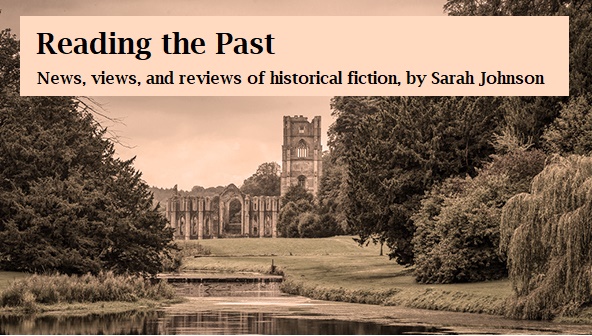Titles frequently mentioned include A.L. Berridge's André de Roland series (Honour and the Sword, In the Name of the King) and Arturo Pérez-Reverte's Captain Alastriste books, especially The Sun Over Breda. All are swashbuckling adventure novels. Eric Flint has an alternate history series, too, which I haven't read. I'm sure you'll help me think of others!
For those of us who didn’t know much about the Thirty Years' War beyond how long it lasted, I highly recommend experiencing Heather Richardson's Magdeburg, which is set in 1630-31. The heroine is a young German woman, Christa Henning, a printer's daughter whose days are occupied with the family trade and domestic concerns, such as her best friend Gertrude's pregnancy and hasty marriage and caring for her “touched” younger sister, Elsbeth. Although the Hennings are Lutherans, the religious situation in Magdeburg is realized with nuanced complexity. Christa's father prints Catholic leaflets on the side, and discord is sown in the house when an ultra-pious pastor comes to stay with them.
Richardson also gives us the alternating viewpoint of the male lead (who I'll avoid calling the hero). Lukas Weinsburg is a sergeant marching with an imperial regiment as it makes its approach on Magdeburg. These scenes include all you'd expect of soldiers anywhere, not just the camaraderie, spitefulness, and excessive drinking but also the tedious routine and inaction.
Magdeburg’s residents go about their tasks while enduring the siege, determined to resist what they know is coming, and hoping that Sweden's king, Gustavus Adolphus, can arrive with his forces in time to save them. He doesn't.
War is a messy, chaotic business, but the author provides a lucid illustration of the larger political and religious picture as one group overtakes the other. I feel obligated to say something about the novel’s eleventh chapter, which is a haunting, poetic masterpiece. It opens: "It was midnight, but no one knew it." The perspective becomes omniscient as it roams away from Lukas and Christa to survey the city as a whole at its darkest hour. In a mere three pages of careful glimpses, Richardson conveys the enormity of the devastation, both material and personal.
I won’t reveal more of the plot, save to affirm that things don't end on that doleful note. Magdeburg's survivors struggle to regain their city and a sense of themselves. The characters are devoid of cliché, and whatever their views on religion, it's central to their lives. They don’t react like 21st-century people would, but our generation isn’t exactly free of violence springing from faith-based differences, either.
Magdeburg was published by Belfast's Lagan Press in 2010 (trade pb, 349pp). You can snag it from Amazon UK or other online bookstores, or do what I did and order it directly from the publisher for £9.99 – which as I recall included postage.











I remember you mentioning this here awhile ago and never followed up on it. There are lots of British-set titles during this period (esp. with their Civil War) but harder to find set in the continent. Tremendous death and destruction during this period. I'll have to see if I can ILL this.
ReplyDeleteSarah Other Librarian
Actually yes, I remember mentioning it here before, now that you bring it up. I bought this one not long after it came out and just got to it now, on a short break from the review copy pile. WorldCat shows a respectable number of US holdings, especially for a small-press title from overseas, which pleases me.
DeleteI wish there were more set on the continent, too. It was such a pivotal period in European history, but it's so neglected in terms of fiction here.
DeleteI remember a few ago having a discussion on the Amazon Historical Fiction forum about novels set during the Thirty Years War and it was quite a struggle to find much. For what it's worth, here is the list we came up with.
ReplyDeleteGood to see another novel making use of this turbulent period as a setting. Claire Letemendia's "Best of Men" is set during the English Civil Wars, but the hero fought during the Thirty Years War as well and his experiences there are seen in flashback.
I don't follow the Amazon forums much anymore, but I remember that discussion. I purchased Wind Time, Wolf Time after seeing the mention there but unfortunately didn't get far with it. Thanks for letting me know that Best of Men covers the Thirty Years' War in part, too. It's on the TBR!
DeleteHave to admit that "Wind Time, Wolf Time" also ended up on my DNF pile :(
ReplyDeleteI might be in a minority, but Berridge's" Honour and the Sword" didn't do it for me either, though I did at least finish it.
The start of the Thirty Years War also plays a part in Ross King's "Ex Libris"
and Christie Dickason's "Noble Assassin".
I haven't yet tried the Berridge, although swashbuckling adventure really isn't my thing personally. Alas, Ex Libris was another DNF for me. It's hugely popular, and it seemed like one I'd enjoy, but I thought it was dry as dust. Noble Assassin was a recent purchase - let's hope, unlike this one, I get to it before two years pass!
Delete